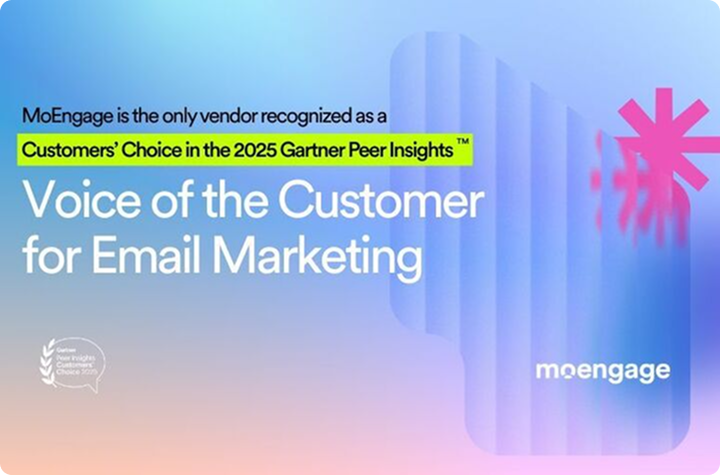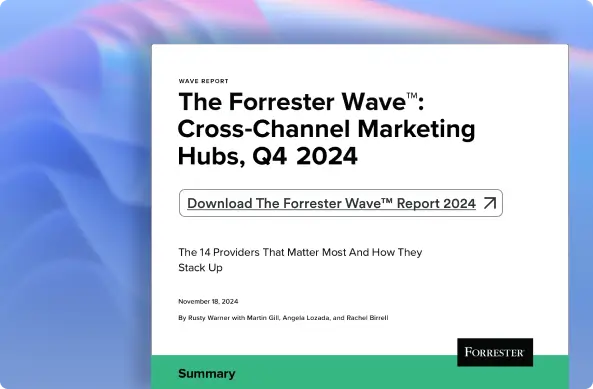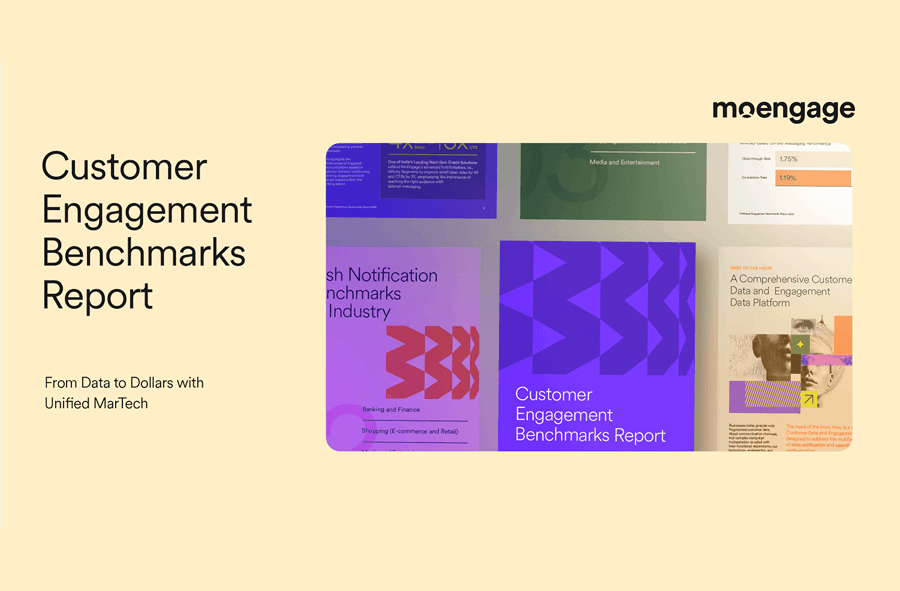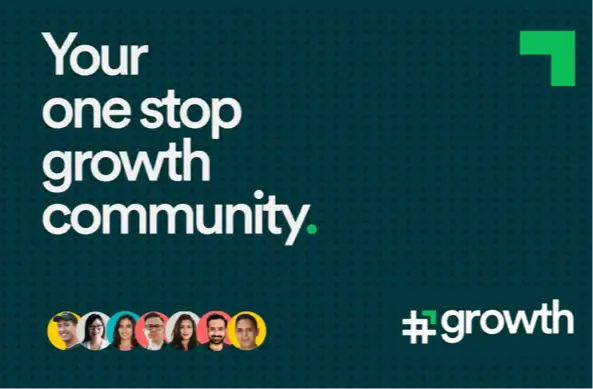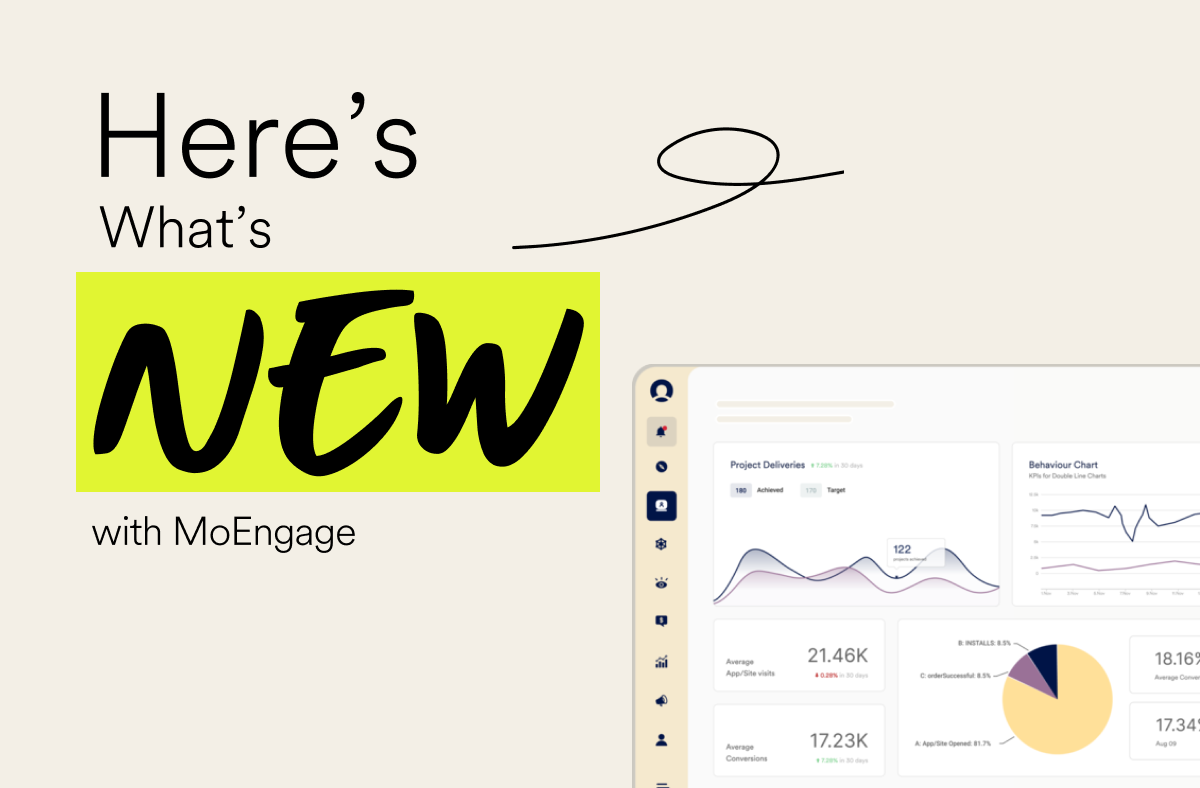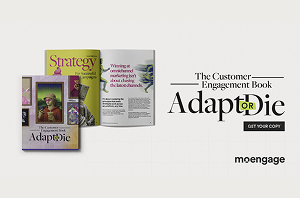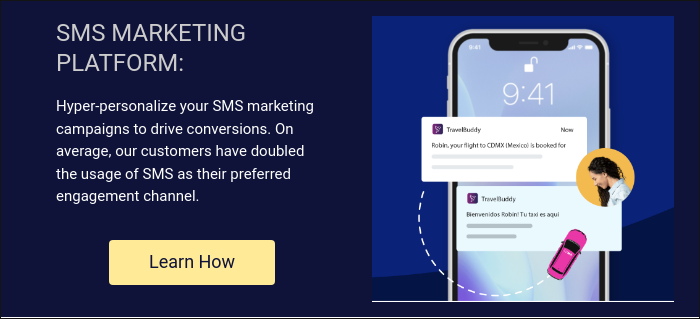Mobile Marketing Automation: A Complete Guide
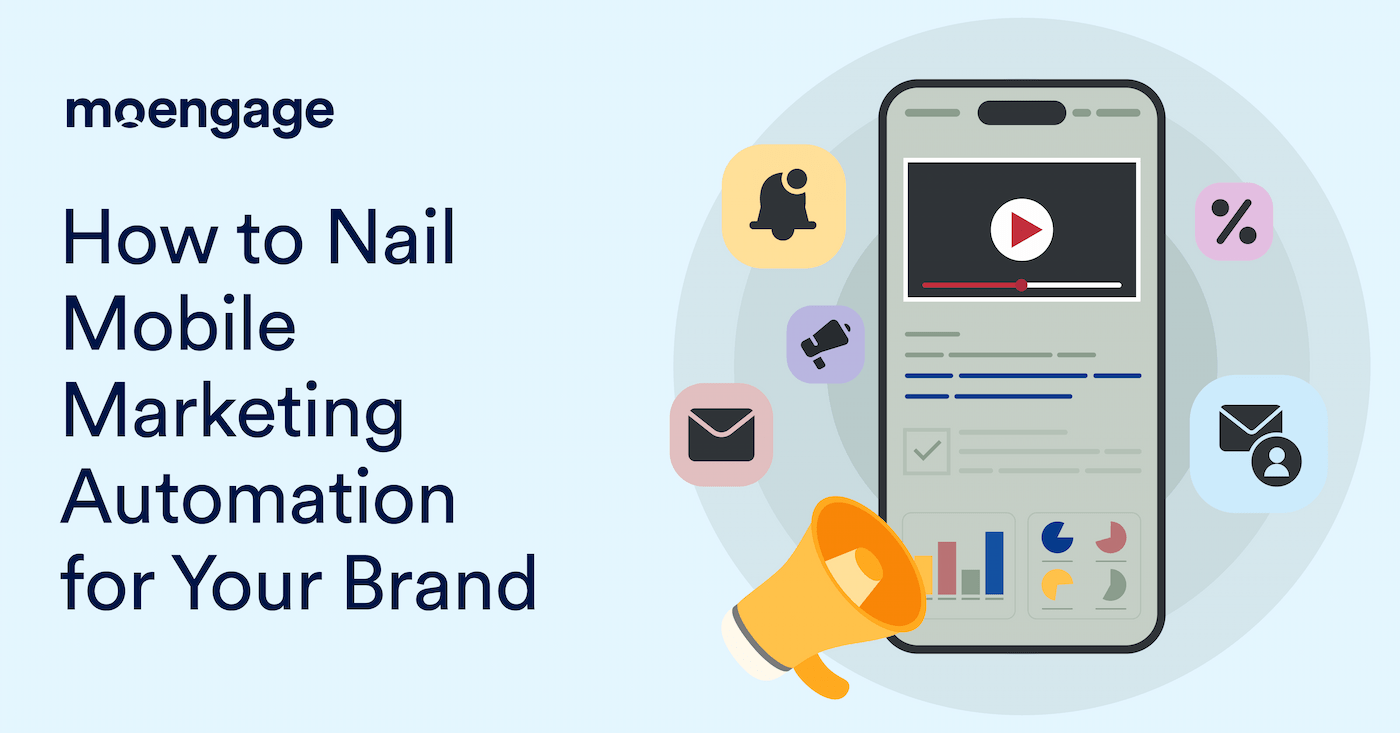
Mobile marketing automation is a must for B2C brands today.
With 4.69 billion people owning smartphones and 92% of smartphone searchers making related purchases, mobile is where the audience is.
As Wendy Clark, former SVP at Coca-Cola, stated, “If your plans don’t include mobile, your plans are not finished.”
The benefits of mobile marketing are endless. But everyone knows manual mobile marketing is inefficient, time-consuming, and costly. Automation is key.
How does one know it’s necessary, though? And if so, what platform is the right fit? What features matter most, and what best practices should be followed?
In this article, we’ll address those questions, providing guidance on selecting a platform, key features, and best practices.
Let’s get started.
What is Mobile Marketing Automation?
Mobile marketing automation is the use of technology to automate the execution, monitoring, and management of mobile-first marketing strategies. It enables brands to personalize their marketing efforts at scale, for instance, sending automatic custom in-app or push notifications to individual customers.
Here, the subtle distinction between mobile marketing and mobile app marketing needs to be clarified. Mobile marketing involves all marketing activity across mobile devices, while mobile app marketing involves strategies to promote and engage customers within an app.
Mobile marketing automation can include analyzing customer data, like in-app behavior, location, past purchases, and more. Brands can then use data-driven insights to create customer segments and engage them with personalized offerings.
3 Mobile Marketing Automation Types
Mobile marketing automation can take various forms, depending on the aspects of the customer journey you wish to automate.
Here are three key types of mobile marketing automation:
- User-Based Customer Journey Automation: User-based customer journey automation refers to using technology to understand and automate various interactions between the business and the customer. It involves identifying specific customer touchpoints and personalizing interactions to optimize the overall journey.
- Event-Based Customer Journey Automation: Event-based customer journey automation uses customers’ actions as key events to trigger certain marketing-related actions, such as sending emails or social media messages. For instance, brands can choose to send mobile push notifications to individual customers based on key events like website visits or cart abandonment.
- Prediction-Based Customer Journey Automation: Mobile marketing automation platforms can make predicting customer behavior possible. Knowing customer behavioral patterns beforehand can help you provide personalized recommendations and experiences to customers.
Now that you have a broad overview of what mobile marketing automation is, let’s look into some of the reasons why your brand should automate its mobile marketing efforts.
5 Reasons Mobile Marketing Automation Gives Better Campaign ROI
Mobile marketing automation can add tremendous value to your campaigns. We highlight a few benefits below:
1. Highly Personalized Experiences
According to Epsilon’s research, personalized mobile experiences deliver 5-8 times the ROI on marketing spend than generic campaigns do. With mobile marketing automation, brands can seamlessly employ data and engage customers with personalized and relevant communications across their lifecycle.
Let’s suppose a customer browses through specific products on your app, but leaves without making a purchase. You can now set up mobile app marketing automation for such customers and send customized deals on those products, potentially bringing them closer to conversion.
2. Scalable Campaigns
As your customer base grows, mobile marketing automation can help run multiple campaigns simultaneously at a humongous scale. Coupled with mobile app personalization, brands can deliver more relatable campaigns, which allows for saved time and money.
3. Re-engaging Inactive Customers
Staring at a large number of inactive customers? Mobile marketing automation can help with identifying them and then finding touchpoints that need rework. Once you’ve done that, you can design mobile marketing campaigns to engage inactive customers at those touchpoints and lower churn.
Let’s say you have a set of customers who have downloaded your app, but don’t open it much. With mobile marketing automation, you can send rich push notifications to retarget these customers and compel them to return using customized deals, promo codes, and more.
4. Cost-effectiveness
You may have grand ideas for your next campaign, but costs can be a major deterrent. With marketing automation for mobile platforms, your ideas could actually see the light of day at significantly lower costs than in print, on TV, and on other media.
Additionally, the targeted nature of automated mobile-first strategies can make every dollar you spend worth it.
5. Omnichannel Reach
An interesting benefit of using marketing automation for mobile apps is the 360-degree customer experience it can help deliver. How? Here’s a quick example to explain it better.
Think of a customer who browsed through your mobile app and even added some products to their cart, but later abandoned the purchase multiple times. With a mobile marketing automation platform, you can access this behavioral insight and send a text message to the customer with a special deal on the same products. Since SMS messages have an average response rate of 45%, it is likely that this customer may read the message and finish the purchase on your app.
This way, mobile marketing automation can help you effectively design omnichannel campaigns and help sustain growth for mobile-first brands.
5 Features to Look for in a Mobile Marketing Automation Platform
If you’ve decided to start your very first automated mobile marketing campaign, you will need a mobile marketing automation platform. Below are some must-have features you may want to look for in your chosen software.
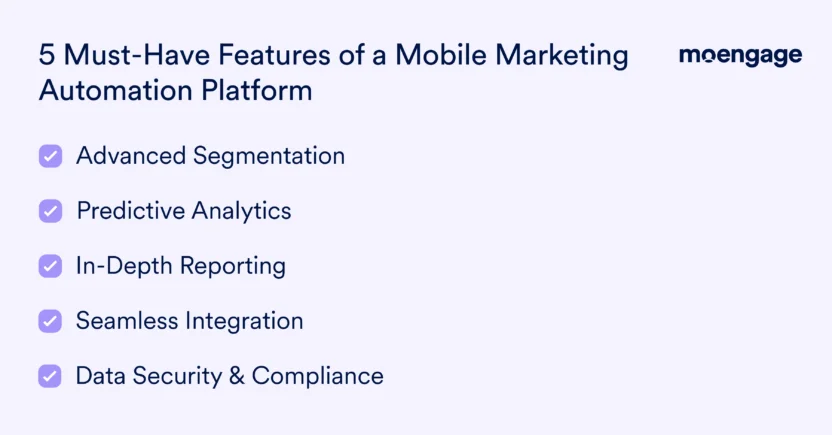
1. Advanced Segmentation
Your campaign’s performance heavily depends on your mobile marketing automation software’s ability to accurately segment your database. Ideally, you should be able to segment your customers based on advanced parameters like customer behavior, inactivity duration, engagement with the brand in previous months, etc.
2. Predictive Analytics
A new-age marketing strategy calls for a data-driven approach that leverages historical data to predict future outcomes. For this reason, you need a mobile marketing automation software that accurately predicts customer behavior and identifies high-conversion customers and those that are likely to churn, so you can take proactive steps to offer relevant experiences.
3. In-Depth Reporting
A lot of mobile app marketing automation tools may provide tracking features only as a measurement activity, along with campaign execution. This requires marketers to switch between channels and analytical tools to get a clear, holistic view of what’s working. Such a process can escalate costs and time needed for monitoring and optimizing marketing automation campaigns, often leading to ill-targeted budgets.
A good mobile marketing automation software will offer all the data and analytics you need in one place. By integrating in-depth information on the performance of specific channels and campaigns, they can help you enhance your campaign ROI.
4. Seamless Integration
An effective mobile marketing automation platform will allow easy integration with other tools. This includes integration with email marketing and website marketing tools to create an omnichannel customer experience. Regardless of the channel, brands can reach customers at various touchpoints for an elevated experience.
5. Data Security and Compliance
Third-party cookies will soon be a thing of the past. In this backdrop, brands will need to collect and use customer data responsibly. While mobile marketing collects first-party data, brands need to ensure that this data is being handled properly.
Before choosing your mobile marketing automation platform, you should check whether it handles customer consent and opt-in/opt-out options, offers additional security features to protect data, and complies with data privacy regulations.
3 Best Mobile Marketing Automation Platforms for Your Campaigns
There are plenty of mobile marketing automation software to choose from, but here are a few that caught our eye.
1. MoEngage
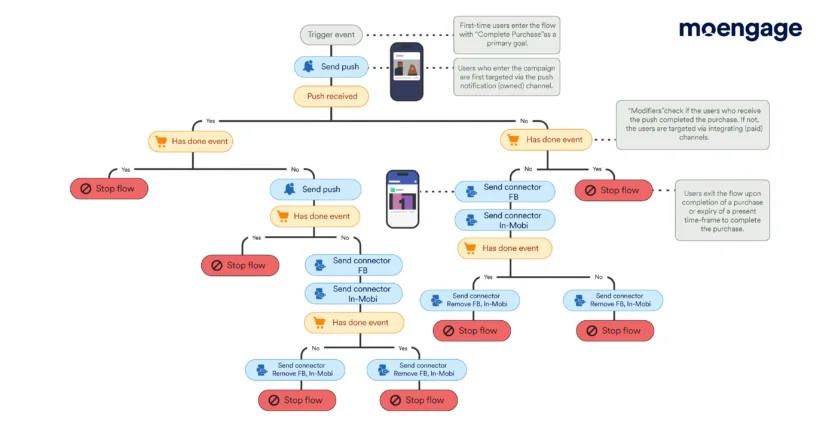
MoEngage’s marketing automation software platform is built to create smart and personalized campaigns powered by AI. The platform comes with smart triggers, granular segmentation, and predictive models. Moreover, with MoEngage Personalize, your mobile-first strategies can make the most of personalization powered by rich data, A/B testing, and experimentation capabilities.
How Pricing Works: MoEngage offers two pricing plans: the Growth plan, which includes essential solutions to help your growing teams build and retain customers, and the Enterprise plan, suited for multi-functional teams to create unique experiences for every customer worldwide.
Best For: Automating end-to-end workflows, leveraging customer data, and creating advanced personalized, omnichannel journeys.
2. Vibes
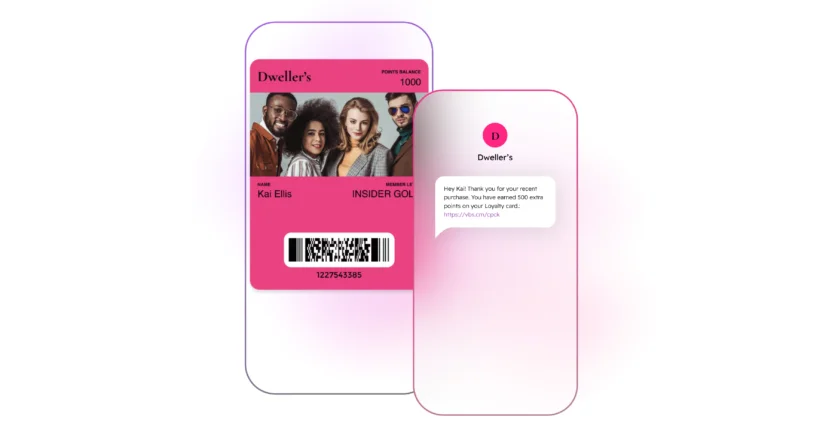
This mobile engagement platform aims for long-term customer engagement and revenue by leveraging your mobile database. Vibes’ platform offers intelligent content recommendations and customized MMS, SMS, and RCS, as well as mobile wallet programs. However, Vibes may lag behind other platforms when it comes to cost-friendliness and customer support.
How Pricing Works: Vibes’ Professional option starts at $40K. You would need to get a customized quote for their Enterprise option.
Best For: Managing SMS, MMS, RCS, mobile wallet, push notifications, and app inboxes.
3. Attentive
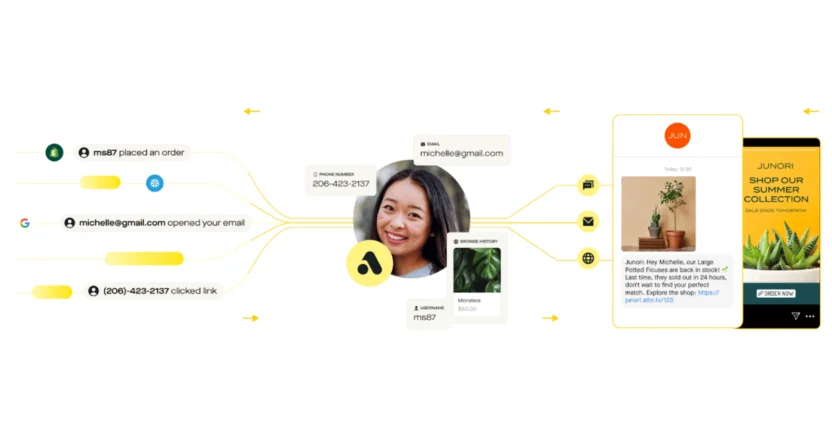
Attentive is an AI-powered platform that helps brands deliver personalized experiences across SMS, RCS, and email. Powering a mobile-first identity, it enables you to create omnichannel experiences with its unified platform.
However, while Attentive is a user-friendly messaging platform, it’s focused on limited channels with relatively higher pricing.
How Pricing Works: Attentive offers custom pricing plans depending on the unique needs of your business.
Best For: Delivering personalized SMS and email experiences.
5 Mobile Marketing Automation Best Practices to Follow
Revving to kickstart your mobile marketing campaign? Add these best practices to your strategies to make your pennies worth it.
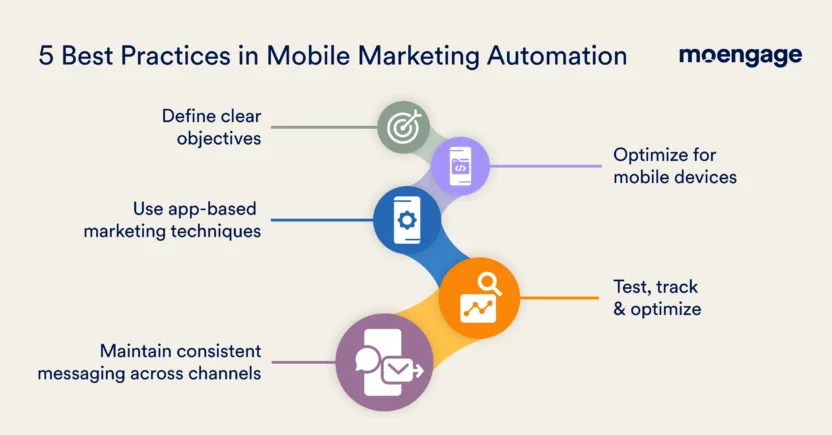
1. Define Strategic Objectives
Identify the key goals of your mobile marketing automation campaign. Is it to grow leads or enhance retention, or something else? Without clearly mapped objectives, your marketing efforts would be akin to shooting arrows in the dark. Your marketing automation plan needs to be aligned with your company’s strategic vision to scale. Once you narrow down your objectives, you can tailor your messaging for specific target segments.
2. Optimize for Mobile Devices for Greater Engagement
When creating your assets for mobile marketing automation, your content needs to be mobile-responsive. This means your content must load quickly, be interactive, and offer a consistent experience regardless of screen size. Using mobile-friendly design elements, easy-to-tap buttons, and smooth navigation can elevate your campaign’s effectiveness. In fact, brands can leverage personalized media in interesting formats like push notifications to boost engagement.
3. Personalize Whenever Possible
One of the best ways you can leverage mobile marketing automation is by personalizing at scale. You can improve your engagement and conversions by offering personalized incentives like offers and promo codes. Well-timed, personalized experiences can help improve loyalty and retention.
4. Test, Track, Optimize
Creating a mobile marketing automation campaign is only the start! To ensure that your campaign is delivering value for money, A/B test your campaigns first. Also, make sure to regularly analyze engagement metrics with your mobile automation software’s analytics features. This sort of data-driven approach can ensure continuous optimization, so every dollar is allocated in the right direction.
5. Maintain Consistent Messaging
While your focus is zeroed in on mobile marketing, it can help to maintain a consistent brand presence across channels. Using a mobile marketing automation software that integrates your mobile campaigns with other channels ticks the right boxes for reinforcing your brand identity.
If you’d like to dig in deeper, here’s a quick video about how marketing automation can fuel growth for a mobile-first company.
Automate Your Mobile Marketing Campaigns with MoEngage
Automated mobile marketing, in today’s smartphone-driven digital age, has massive potential for any industry. To harness that potential, you need an insights-led mobile marketing automation platform like MoEngage.
MoEngage can help you truly maximize your mobile marketing campaigns. Schedule a quick demo with the team to experience the power of automation at full throttle.



